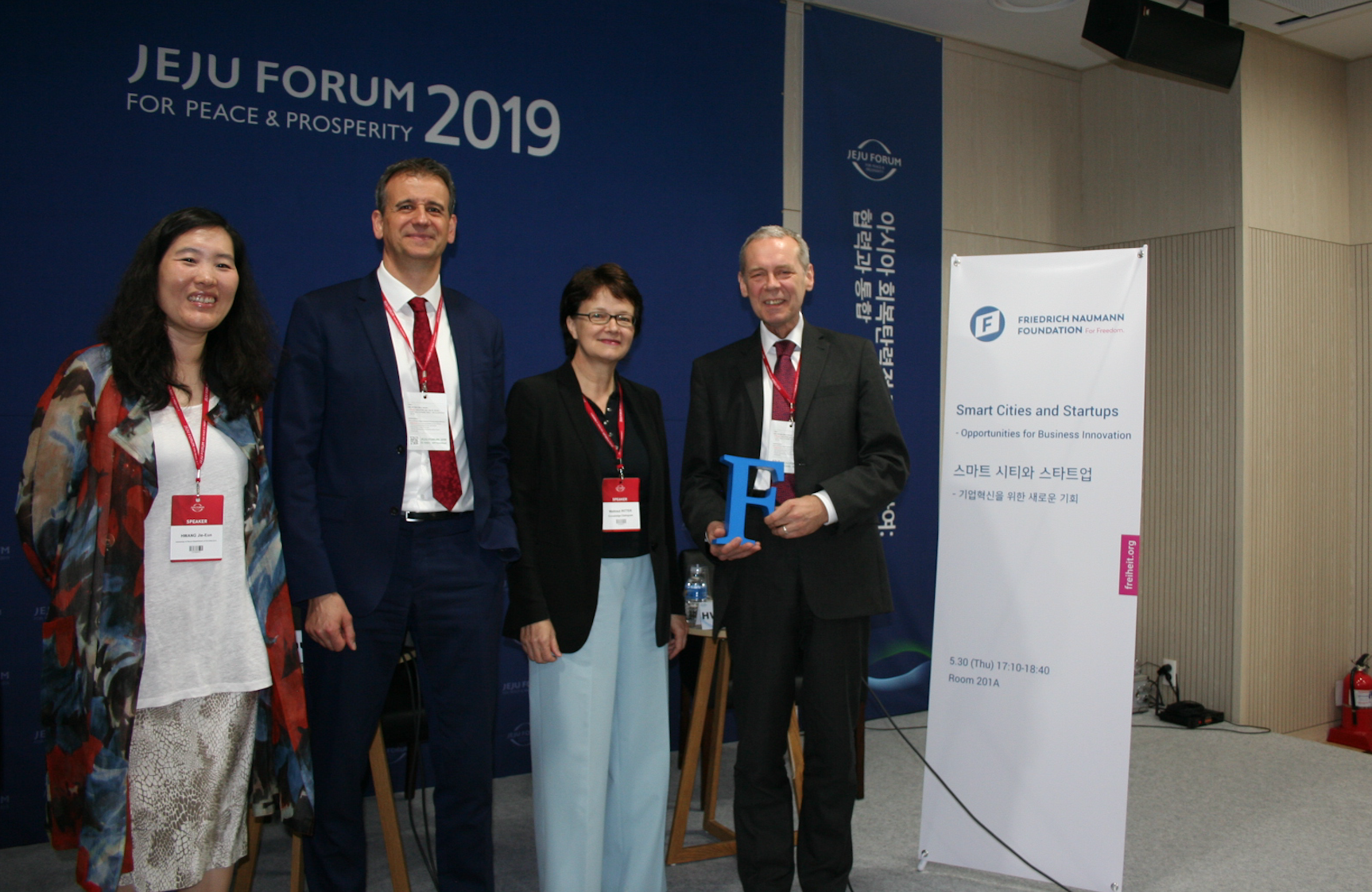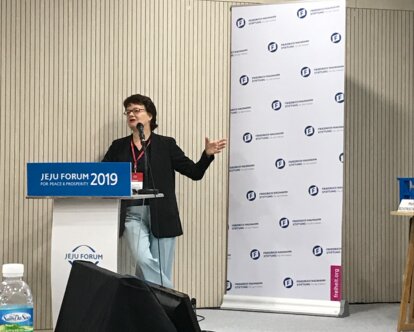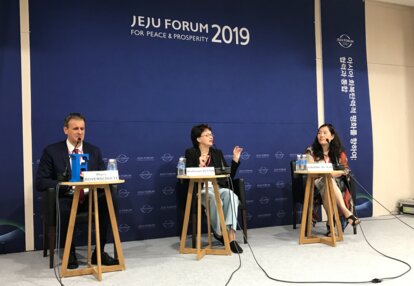[Jeju Forum] Smart Cities and Startups

From Left: Prof. Jie-Eun Hwang, Dr. Marc Bovenschulte, Ms. Waltraut Ritter and Dr. Christian Taaks
©Last month, I flew to Jeju, a beautiful island located south of the Korean peninsular, to join the Jeju Forum for Peace and Prosperity and I am very happy to be involved in the session organized by FNF Korea.
The Forum was a 3-days-long event. The theme of this year is "Asia Towards Resilient Peace: Cooperation and Integration" with diverse topics including US-China Trade War, East Asia geopolitics, North Korea nuclear issues, innovation and more.
The FNF session entitled "Smart Cities and Startups - Opportunities for Business Innovation". Dr. Christian Taaks, Head of Korea office in Seoul, explained the reason for this topic in his opening remarks, "resilient peace is closely related to economic development and cooperation... Smart City is a global phenomenon. Every citizens and countries are involved in this development."

His speech was followed by the introduction by the Moderator of the panel - Ms. Waltraut Ritter, who is the Founder of the Knowledge Dialogues in Hong Kong. She has joined many smart cities discussion and she found out that "Top-down perspective (government perspective) is very often adopted in discussion related to smart city development". Because of this, in contrast, a bottom-up approach was adopted in this session because "citizens are the core and owners of the city." She used the term "Citypreneurs" to explain how startups play an essential role in smart city development, as citizens today are more empowered with new technologies to cooperate with governments for providing better governing and planning solutions.
Dr. Marc Bovenschulte, Director of Institute for Innovation and Technology in Germany, used Berlin as an example to explain the success factor for a city to be attractive for startups entrepreneurs. "Berlin has no clue how to improve startup system but to offer cheap spaces in the first place" said Bovenschulte. Many former buildings and offices were rented out in very affordable price and living cost is relatively low, that allows entrepreneurs with limited financial resources to start and gradually grow their business. Secondly, Berlin possesses high quality universities and research institutes that provide easy access to new knowledge and talent that can inject startups with new ideas and technologies. In addition, as Berlin is famous for its tolerance for diverse culture, which allows "constructive friction" to boost innovative ideas. Last but not least, the economic complexity in Berlin, i.e. diverse range of industries, also helps to make the startup boom. With all these factors combined, Berlin has become one of the major startup city in the world.
Prof. Jie-Eun Hwang, Chair of Department of Architecture, University of Seoul, provided an in-depth case study on Sewoon Sangga Project to explain how regeneration of old urban space provides opportunities to startups. The Sewoon Sangga project, a 1.2 km un-optimized building structure was built in Seoul in 1968, once an important hub for Korea's electronic industry, is now turned into several shopping centres and urban manufacturing facilities. Besides some long-existing vendors that specialize in electrical goods, electronics, machinery and metals, some new startups are encouraged to set up their business. With 1,000 stores in the building complex, advanced technologies like 3D printing and robotics can be found. In addition, with organization that incubates, educates and supports startups, more young people are attracted to revive the area. This provides a favourable condition to enable thriving startup ecosystem.

Panel discussion was moderator by Ritter after the presentations. one of the Topics discussed is open and public data. All speakers said it is challenging to gain access to these data in the cities they are now living in, as governments are usually conservative and are unwilling to reveal such data due to privacy concerns or they regarded it as an asset that shouldn't be provided for free.
All in all, this is a fruitful session with an interesting discussion. This provides an opportunity to think about the future of the startup ecosystem and smart city development and how government and citizens can collaborate to facilitate a better future for everyone.